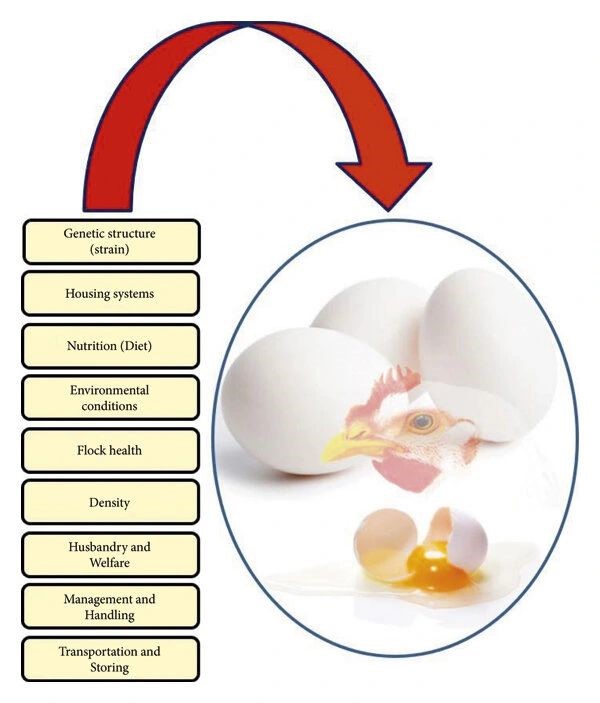Factors affecting eggshell quality, including:
1. *Nutrition*: Adequate calcium, phosphorus, and vitamin D3 are essential for strong eggshells.
2. *Age*: Eggshell quality tends to decline as hens get older.
3. *Breed*: Some breeds can produce thinner shell eggs.
4. *Health*: Stress, diseases, and parasites can impact eggshell quality.
5. *Environment*: Temperature, humidity, and lighting can influence eggshell formation.
6. *Genetics*: Genetic factors can affect eggshell thickness, texture, and color.
7. *Calcium levels*: Inadequate calcium can lead to thin, weak shells.
8. *Phosphorus levels*: Phosphorus deficiency can cause soft or fragile shells.
9. *Vitamin and mineral deficiencies*: Lack of vitamins like D3, B1, and minerals like manganese can impact eggshell quality.
10. *Stress*: Stress can cause hens to produce eggs with weaker shells.
11. *Egg production rate*: High egg production rates can lead to thinner shells.
12. *Molting*: During molting, hens may produce eggs with weaker shells.
13. *Diseases*: Certain diseases, like infectious bronchitis, can affect eggshell quality.
14. *Medications*: Some medications, like antibiotics, can impact eggshell quality.
15. *Feed quality*: Poor-quality feed can lead to nutrient deficiencies, affecting eggshell quality.
By understanding these factors, poultry farmers and breeders can take steps to optimize eggshell quality and produce high-quality eggs.


